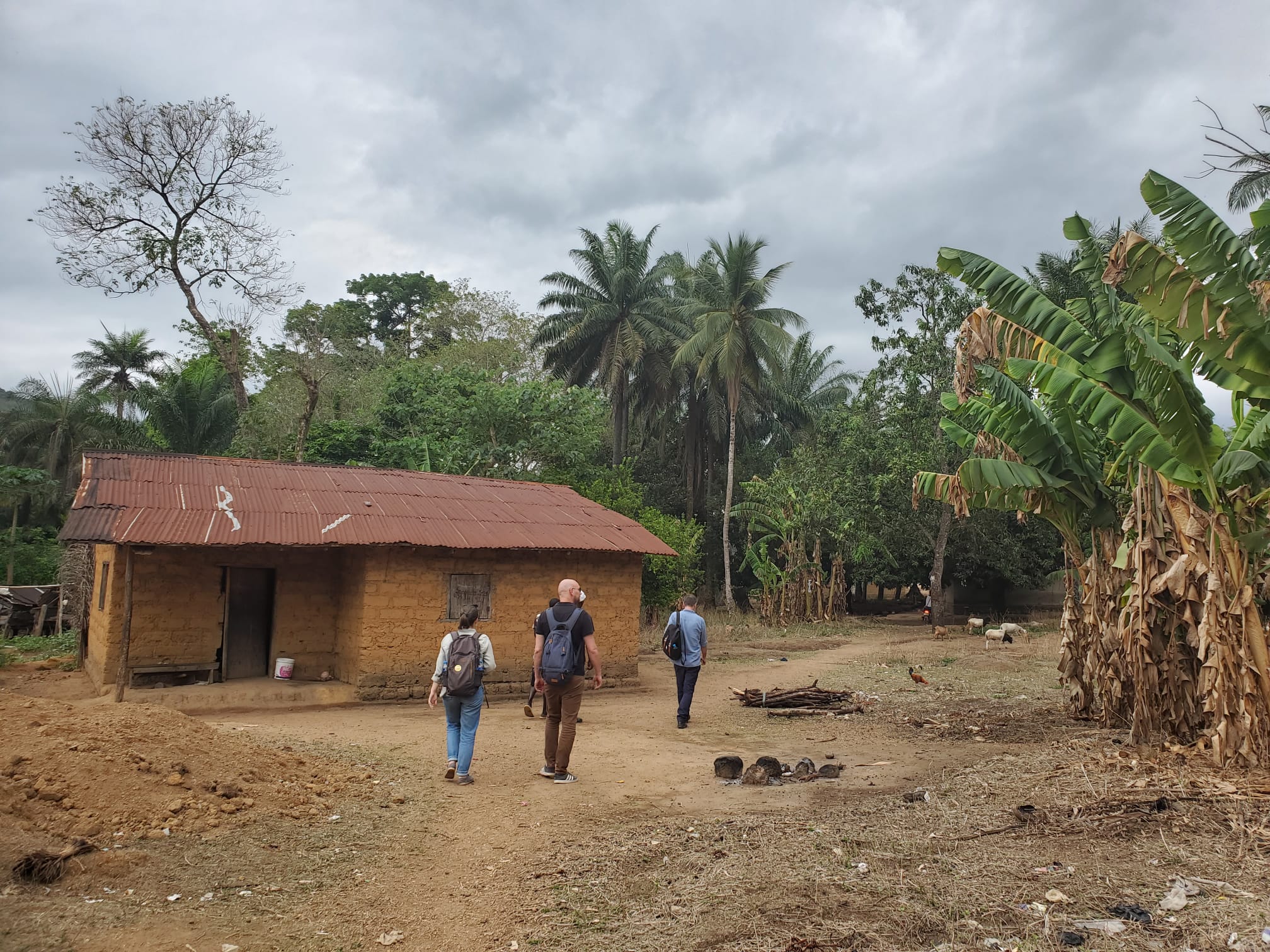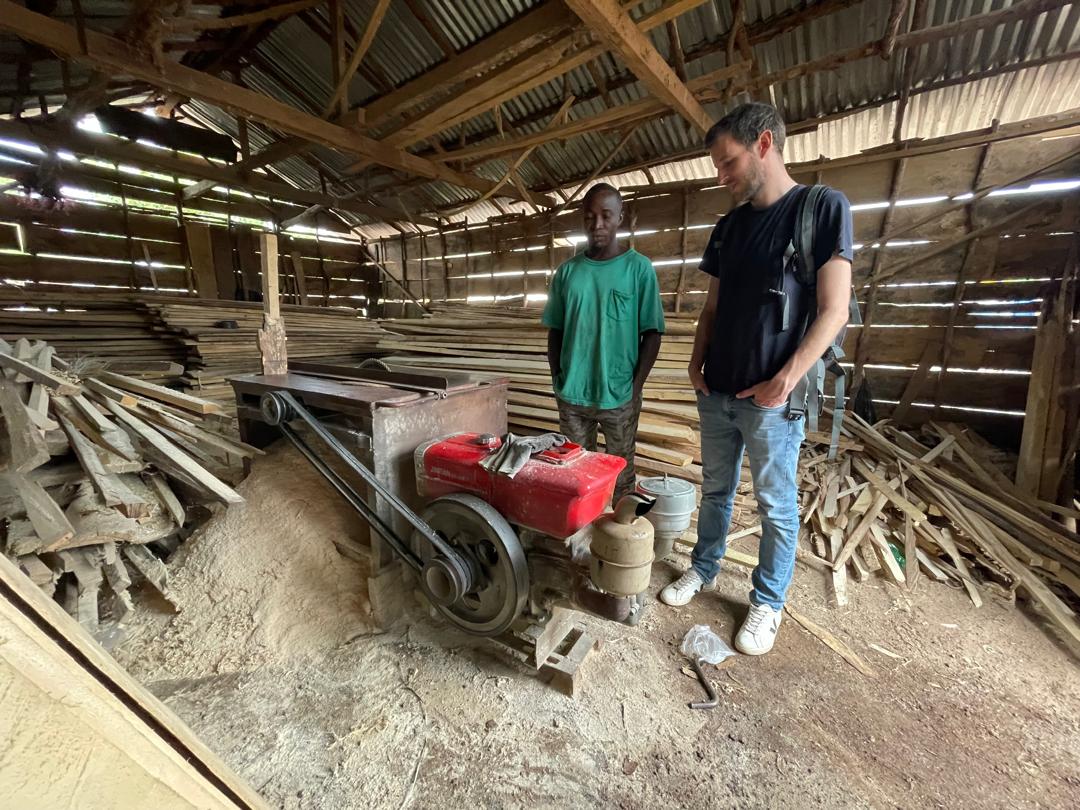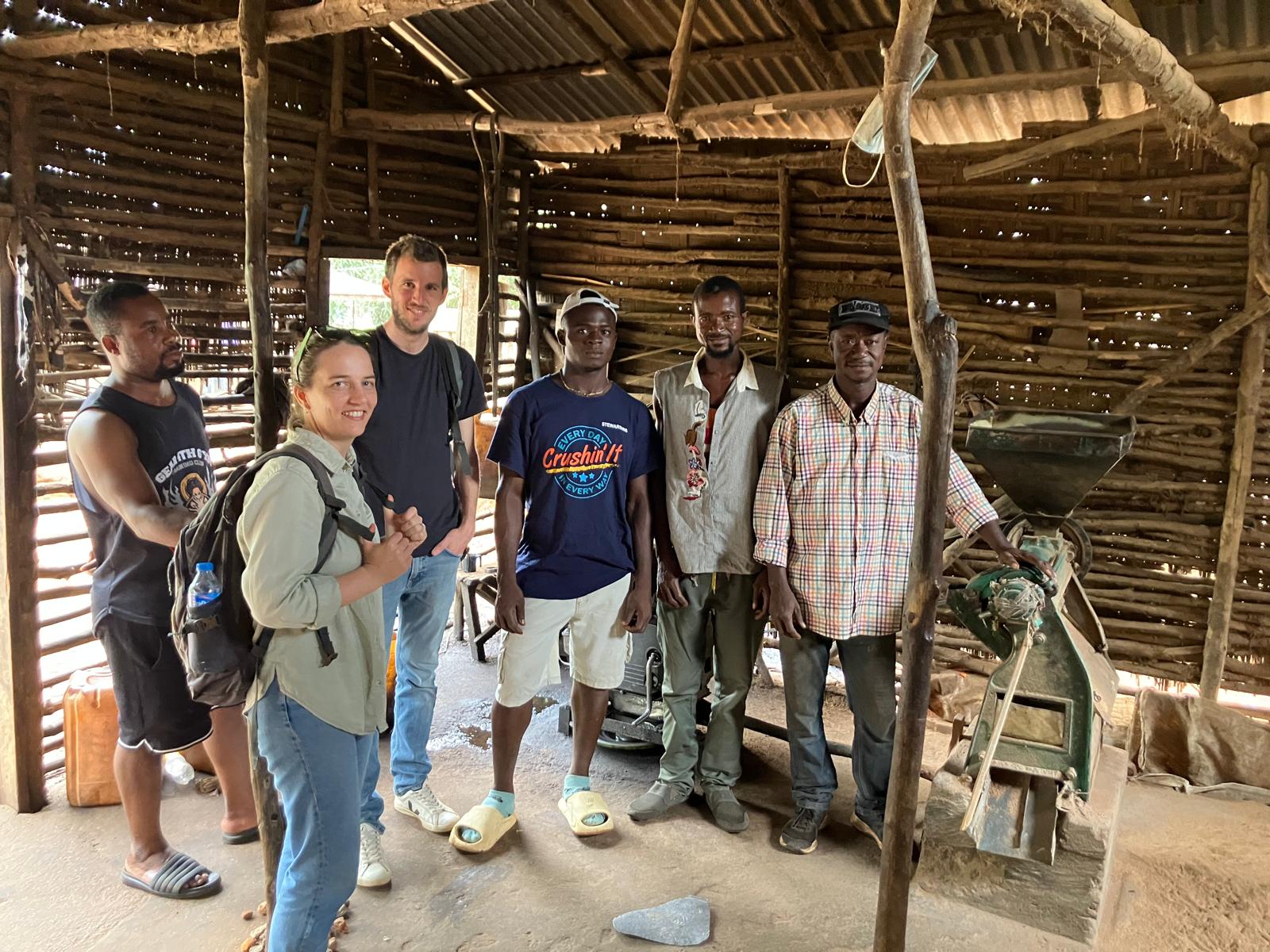Sierra Leone
Context and challenges
Geography and demographics
Located in West Africa in the Gulf of Guinea, Sierra Leone borders Guinea to the north and northeast and Liberia to the southeast. The climate is tropical and humid, with two distinct seasons: rainy and dry, with abundant rainfall.
Once widespread, the dense forest now survives only in isolated patches, mainly in the eastern regions, while most of the territory is now covered by degraded forests. Sierra Leone also stands out for its multiple deposits of highly sought-after mineralized rocks such as iron, bauxite, rutile, and columbite. Diamond deposits are also found in the southeast of the country. The coastal plains, meanwhile, are ideal for agriculture, despite their unsanitary conditions.

Marked by serious economic and health crises (Ebola, Covid, Mpox, etc.), Sierra Leone was also ravaged by civil war from 1991 to 2002. Since then, the country has entered a democratic era, promoting economic recovery driven by private and development actors.
Its human development index stands at 181 out of 195, reflecting the significant socio-economic challenges that still exist today.
With more than 8.46 million inhabitants, the population is distributed as follows: 56% in rural areas and 44% in urban areas, half of whom live in slums. Economically, more than half of the population lives below the poverty line on less than $2 per day.
Access to energy in Sierra Leone
The national electricity grid is limited to Freetown, the capital, and a few commercial cities in the country. Access to electricity remains a major challenge for the country, with a coverage rate of less than 30% and less than 5% in rural areas. The energy sector currently depends on fossil fuels, which are highly vulnerable to shortages and have little financial viability: in rural areas, rates are twice as high as the African average: $0.28/kWh.

Local authorities in Sierra Leone are aiming for 92% national electrification by 2030, relying mainly on partnerships between the public and private sectors and focusing on solar energy in rural areas. With mini-grids under development but still insufficient, existing operators are already encountering significant difficulties in terms of infrastructure quality and scale. Added to this are significant economic constraints linked to low tariffs and the devaluation of the Leone, the local currency.
These issues are exacerbated by climate change, which severely limits development in rural areas of Sierra Leone and encourages migration. More broadly, the country struggles to promote local products and locally sourced goods, particularly food, which means that Sierra Leone imports 80% of the food consumed by its population.
Geres in Sierra Leone
Present in West Africa for nearly 20 years, Geres established itself in Sierra Leone in 2025, after two years of studies to develop a large-scale project to transform the rural landscape of Sierra Leone by providing sustainable and affordable access to energy.

Focusing on agriculture and small rural businesses, our teams seek to stimulate local economic development, improve food security, and reduce the hardship of work, particularly for women, while promoting low-carbon energy solutions.
Despite an ambitious government policy to create and expand mini-grids, the lack of production resources and appropriate solutions limits the value of local production, economic autonomy, and the resilience of populations, particularly women who are heavily affected by the hardship of non-mechanized agricultural activities. Difficulties in accessing storage, processing, financing, and training are hindering the development of productive activities.
In addition, mini-grid operators face structural problems (devaluation, seasonality, undersized equipment, low customer consumption). The project aims to remove these obstacles by supporting micro-enterprises, cooperatives, and productive groups in order to strengthen the local value chain and generate sustainable socio-economic impacts, particularly in terms of jobs and local services.
Our intervention will therefore involve all stakeholders in the energy sector, from its management (Ministry of Energy and government agencies) to its production (operators and suppliers of autonomous technical solutions) and its productive consumers (small businesses, cooperatives, groups), with a view to improving living conditions and strengthening the rural economic environment.
WOULD YOU LIKE TO TAKE ACTION
AND SUPPORT WHAT WE DO?
Tell us who you are and find your means of action.
CITIZENS
Because Climate Solidarity is a challenge we face collectively, Geres gives you the possibility to make a difference.
PRIVATE SECTOR
As a business executive, an employee or a customer, you have the power to take action in your everyday life.
LOCAL AND INSTITUTIONAL ACTORS
Support our actions in France and internationally and become an agent of change at our side.
FOUNDATIONS
By supporting Geres, you contribute to the implementation of innovative and concrete actions.
